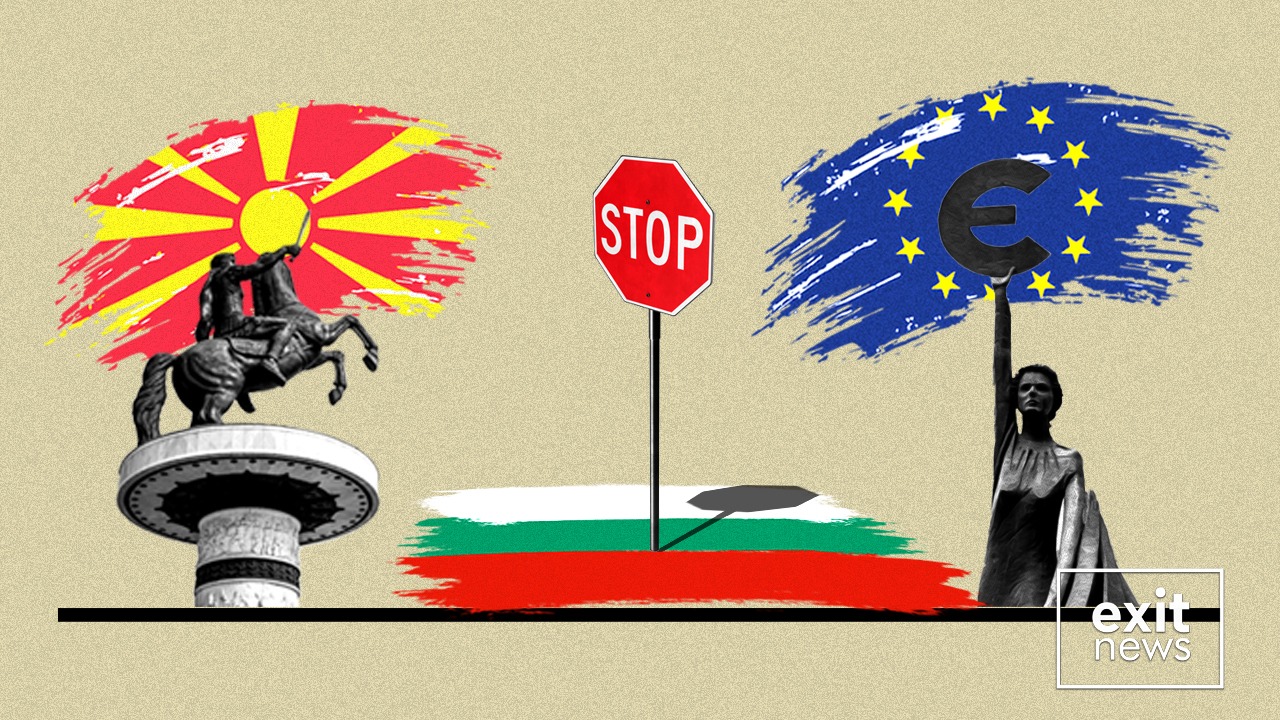
15:35 update
European Council chief Charles Michel also confirmed a solution addresses both parties’ concerns.
“Welcome @Europe2022FR solution for an agreement that would pave the way for opening of EU accession talks with North Macedonia. The solution addresses concerns expressed. We are the closest we have ever been: now is the time to say yes,” he said in a tweet.
A Macedonian official clarified that, “There is no final deal yet. Consultations will be continuing over the coming days.”
15:29 update
North Macedonia’s statement:
“The Government of the Republic of Northern Macedonia, through the Ministry of Foreign Affairs, received a proposal from the French Presidency with ideas that refer to our publicly stated positions and views.
“This is the basis for opening a broad consultative process first in the Government and the coalition partners, and then with the President, the Parliament and the opposition, as well as with the civil sector, the expert and the general public in the country.
As we promised, we will make the decision for our future jointly, on the merits, in accordance with the Strategic interests of the country and all its citizens.
We would like to thank President Macron and the French Presidency for their efforts to overcome obstacles and preserve European credibility in the Balkans.”
So far, Bulgaria is yet to release a public statement.
15:13 update
French President Emmanuel Macron said a compromise has been found between Bulgaria and North Macedonia on the former’s veto of Skopje’s EU accession path.
The news comes following a decision on Friday last week in Bulgarian parliament to lift the veto under certain conditions, referred to as the ‘French proposal’. North Macedonia, however, said it would only consider agreeing if its own concerns were adhered to.
Things appear to have moved on however, as Macron told the media at the NATO summit in Madrid on Thursday (30 June) afternoon, that, “We continued our consultations with the Macedonian and Bulgarian authorities, because our commitment to the European perspective of the Western Balkans is to be able to open the first chapters for Macedonia and Albania. Based on these consultations, I am convinced that we have found a compromise solution that suits everyone’s sensibilities. In the interest of Bulgaria and Northern Macedonia, acceptable to all.”
He expressed hope that “consideration by both sides in the coming days will confirm this.”
The Macron Proposal
Bulgaria’s demands for lifting the veto included stating that nothing in the process of European integration of North Macedonia can be interpreted as a recognition by the Bulgarian side that there is a “Macedonian language”. Another text says that good neighbourliness will be a criterion Skopje should systematically fulfil.
Mcedonian Prime Minister Dimitar Kovacevski has been clear that the following elements must be included in any agreement;
- clear wording on the Macedonian language and protection of the Macedonian identity (in the negotiating framework, the Macedonian language is not a topic, there is only a clarification of how documents will be translated into it);
- historical issues cannot be criteria in the negotiating framework (they are not, although the text refers to the Neighborhood Agreement);
- Negotiations between North Macedonia and the EU must begin before the constitutional change that would recognise Bulgarians as an ethnic minority group;
- clear guarantees that Bulgaria will not have any more requests;
- any decision concerning the EU negotiations to be consulted with the institutions of Northern Macedonia.
Further details on the agreement and what the conditions or terms are have not been released so far.
“This solution brings security, predictability and certainty to overcome disputes inherited from the past,” Macron said.

